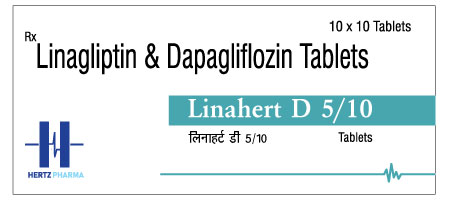As Dubai’s population continues to grow and diversify, the demand for in-home health care services has surged, driven by an increasing number of expatriates and elderly residents needing specialized support. The high-pressure lifestyle of the city, combined with unique cultural factors, often leads to significant caregiver stress. Recognizing this, more families are turning to home health care services to relieve caregiver burdens, ensuring high-quality medical attention for their loved ones without disrupting the family’s balance. This article explores how in-home health care can alleviate caregiver stress in Dubai, supported by data on current market dynamics and trends.
Rising Demand for In-Home Health Care Services in Dubai
The in-home health care sector in Dubai has experienced remarkable growth, driven by several factors. The city’s demographics include a large population of aging expatriates who, lacking family support structures typical in their home countries, often need external help to manage chronic illnesses, post-operative care, and everyday needs. The UAE’s commitment to high standards of living and Dubai’s status as a global hub have also amplified demand for services that bring professional medical attention directly to residents’ homes.
In 2023, Dubai witnessed a 15% increase in demand for home healthcare services, largely attributed to an aging population and rising cases of lifestyle diseases such as diabetes and cardiovascular disorders. These conditions often require ongoing medical management, which can add strain on family members acting as primary caregivers. Consequently, families are increasingly relying on home healthcare providers to manage these challenges, seeking both convenience and quality of care within their homes.
Key Benefits of In-Home Health Care for Alleviating Caregiver Stress
- Reduced Physical and Emotional Strain on Family Members
Caregiving, especially for the elderly or chronically ill, is physically and emotionally demanding. Family caregivers often find themselves balancing their professional responsibilities with caregiving duties, which can lead to burnout, fatigue, and even mental health challenges. In Dubai, where the work culture is fast-paced and expectations are high, caregiver burnout is a prevalent issue.
By opting for the best home healthcare in Dubai, families can reduce the strain placed on primary caregivers. Professional caregivers can handle routine medical tasks, mobility assistance, medication management, and more, allowing family members to focus on emotional support rather than practical demands. This shift not only alleviates caregiver stress but also enhances the quality of life for both caregivers and patients.
- Access to Specialized Medical Home Health Care Services
Dubai’s home healthcare industry offers highly specialized services, including post-operative care, palliative care, and wellness-focused home health care. With wellness doctor home health care, caregivers can avoid frequent hospital visits and manage health needs from the comfort of their homes. Furthermore, skilled nurses and therapists can provide expert attention, particularly useful for complex cases that require medical monitoring, physical therapy, or rehabilitation.
This level of professional support in medical home health care services ensures that caregivers don’t need to worry about handling specialized medical procedures. It also gives them peace of mind, knowing that trained professionals are available to manage health crises, administer treatments, and adjust care as necessary based on health progress or changes in the patient’s condition.
Technological Advancements and Their Role in Home Healthcare
Dubai has been at the forefront of integrating technology in healthcare, and in-home health care is no exception. From telehealth consultations to remote monitoring devices, technology has made it easier for caregivers to stay connected with healthcare providers without needing frequent hospital visits.
Recent statistics show that 85% of home healthcare providers in Dubai use some form of digital technology to enhance patient care. Telemedicine, in particular, has proven invaluable for caregivers, allowing them to consult doctors, seek advice, and even schedule follow-ups through video calls. Wearable health devices, such as those that monitor heart rate, blood pressure, and oxygen levels, allow caregivers to observe health metrics in real-time, reducing the pressure on them to constantly assess health conditions. With these advancements, caregivers can feel more secure and supported, reducing their stress and enabling them to balance other responsibilities more effectively.
Financial Aspects: Cost-Effectiveness of Home Healthcare in Dubai
Another significant factor contributing to the popularity of in-home health care services in Dubai is cost-effectiveness. The average cost of extended hospital stays or specialized facility care in Dubai can be substantial, which adds to the stress of caregivers who need to make decisions about the best care options for their loved ones.
For families seeking the best home health care services, in-home care often presents a more economical choice, as it reduces the need for hospital admissions and emergency visits. According to recent market data, families in Dubai save approximately 20-30% by choosing home health care over long-term hospital stays. This financial relief not only benefits the patients but also eases financial stress on caregivers, enabling them to allocate resources to other areas, such as quality-of-life improvements or long-term financial planning.
Customized Care Plans and Cultural Sensitivity
Dubai’s multicultural landscape presents unique challenges in caregiving, with different cultural expectations surrounding family support and healthcare decisions. In-home health care services in Dubai have adapted to meet these needs, offering customized care plans that respect the cultural and religious values of each family.
Home healthcare providers are trained to respect cultural nuances and preferences, ensuring a personalized approach that aligns with the family’s values and routines. This cultural sensitivity relieves caregivers of the stress associated with coordinating care that meets both medical needs and cultural expectations. By partnering with culturally aware and trained caregivers, families can focus on supporting their loved ones emotionally without worrying about the minutiae of healthcare management.
Regulatory Support and Quality Assurance in Dubai’s Home Healthcare Market
Dubai’s government has taken steps to ensure that home healthcare providers meet stringent quality standards. The Dubai Health Authority (DHA) has implemented regulations requiring all home healthcare providers to adhere to established healthcare protocols, and regular audits ensure compliance. This regulatory framework provides families and caregivers confidence in the quality and reliability of care.
For caregivers, knowing that they can rely on well-regulated, best home healthcare in Dubai significantly eases stress, providing reassurance that their loved ones are in safe hands. The government’s emphasis on quality assurance also contributes to the growth of the industry, attracting high-caliber healthcare professionals who bring expertise and a patient-centered approach to in-home care.
The Future of Home Healthcare in Dubai
Looking ahead, Dubai’s in-home healthcare market is poised for further growth. Industry analysts predict a continued annual growth rate of 10-12% in the coming years, with rising awareness of caregiver stress and a focus on preventive health driving demand. Furthermore, Dubai’s commitment to innovation in healthcare means that future services will likely incorporate more sophisticated health-monitoring devices and AI-driven solutions, enhancing the level of support available to caregivers.
A particularly promising trend is the expansion of wellness doctor home health care services, which prioritize preventive care and chronic disease management. By proactively addressing health concerns before they escalate, caregivers can experience a more balanced and stress-free care environment. Additionally, as the government continues to invest in healthcare infrastructure, we can expect increased affordability and accessibility for families across the economic spectrum.
Conclusion
In-home health care services in Dubai offer substantial relief for family caregivers, easing the physical, emotional, and financial burdens of caregiving. With access to specialized medical expertise, advanced technology, and culturally sensitive care plans, families in Dubai can confidently manage their loved ones’ health while maintaining balance in their own lives. Regulatory support and quality assurance measures from the Dubai Health Authority further enhance the reliability of these services, fostering trust and security.
For Dubai’s fast-paced society, where families often juggle demanding careers and personal lives, in-home healthcare is not only a practical choice but a necessary one for reducing caregiver stress. The city’s home healthcare sector is set to continue evolving, promising more innovative solutions that further ease the challenges of caregiving and enable families to provide compassionate, professional care for their loved ones right in their homes.





